Russia said it is getting rid of all U.S. dollar assets from its “Sovereign Wealth Fund” and is increasing holdings of other currencies such as the euro, Chinese yuan and gold, which analysts said was a political move to send a signal ahead of the presidential summit later this month in Switzerland between U.S. President Joe Biden and Russian President Vladmir Putin.
Russia has gradually reduced its dollar reserves since the imposition of Western sanctions following Moscow’s annexation of Crimea in 2014, and has sought to partially disengage from the Western financial system.

After the changes, which will be finalized in one month in June 2021, the Russian fund will have 40% of its assets in euros, 30% in yuan, and 20% in gold. The Japanese yen and the UK pound sterling will account for 5% each, according to the Russian Finance Minister.
The dollar’s share will drop from 35%, while the pound’s share will halve. Gold will be added to the NWF “National Wealth Fund” for the first time.
The ruble – Russia’s official currency – firmed marginally on the news, although First Deputy Prime Minister Andrei Belousov said he did not expect the move to affect the exchange rate.
Analysts at ING said the move implied the sale of $40 billion in favor of gold, yuan and euro.
Russia’s NWF, which accumulates Russia’s oil revenues and was initially designed to support the pension system, had assets of $185.9 billion as of May 1, 2021. This fund is part of Russia’s gold and foreign exchange reserves that totaled $600.9 billion as of May 27.
Russia’s central bank reduced its holdings of U.S. Treasury bonds in 2018 and cut the dollar’s share of its gold and forex reserves in 2020 to 21.2 percent as of January 1, down from 24.5 percent a year earlier. The central bank reports this data with a six-month lag.
According to Kremlin spokesman Dmitry Peskov: “This process of ‘de-dollarization’ is taking place not only in our country, but in many countries around the world that have begun to worry about the reliability of the world’s reserve currency.”
Why is the “de-dollarization” of the Russian national fund important?
The strength of the US dollar as the “de facto” world reserve currency leaves the United States in a privileged position compared to any other country in the world.
This is because, because of this strength of the dollar, most of the world’s banking/financial transactions are done in dollars. In addition, most oil and commodities are also traded in US dollars.
This strength of the dollar is also reflected in the search for U.S. bonds as the main and safest investment for countries, large multinationals, and large institutional funds. So far the United States has been able to take on almost unlimited debt as there is always demand for its bonds.
What is the problem for the United States if the dollar ceases to be the world’s main reserve currency?
The global strength of the United States is entirely tied to the strength of its currency. With it, the United States can take on almost unlimited debt, use that debt to increase its military budget – almost equal to the military budget of the next 7 largest countries combined – and impose effective sanctions on almost any country, entity, or individual since almost every financial transaction goes through American banks due to the use of the dollar.
If the dollar begins to lose its importance in the same way that sterling began to lose its importance with the collapse of the British Empire, the US has lost the main pillar of support for its hegemony. With this, another secondary but essential pillar will also weaken: American military power.
Without being able to issue debt so easily, the U.S. may begin to struggle to maintain its military budget of nearly $700 billion per year, and thus stay ahead technologically of China and Russia. This will weaken America’s main geopolitical weapon.
Finally, if more countries and entities start using other currencies for their global transactions and reserves, they will no longer need to use the American banking system and its SWIFT system of international money transfers. Therefore, if there are sanctions against them, they could easily evade them by using other countries’ currencies and banking systems, thus making America’s second biggest geopolitical weapon less effective.
Eventually, the United States will weaken in general and thus diminish its influence in the world, possibly ceasing to be a hegemonic country.
That Russia, the natural rival of the United States is trying to weaken the dollar is no surprise. Russia has a special interest in doing this quickly and undermining global confidence in the dollar because it is a petro-state and a strategic rival to the United States.
However, other American rivals and countries that are not comfortable with this privilege of the dollar are also dramatically reducing the dollar’s share of their foreign exchange reserves over the past two decades.
However, it is unlikely that Russia or any other country will completely cleanse its financial system of all U.S. dollars since there is still no global currency that can replace Uncle Sam’s currency.
Are there other currencies in the world that could replace the dollar as the world’s primary reserve currency?
Whenever there is this discussion about the excessive power of the American dollar and what would be a viable alternative, two currencies constantly come to mind: the Euro (the common currency of the European Union) and the Chinese Yuan. However, both have their disadvantages compared to the US dollar.
The Euro and the European Union itself are still unfinished projects. The European Union is not a country, but a hybrid of a multilateral institution and a federation where much of the power is still in the hands of the member nation-states.
And the Euro, which will one day be the official currency of the entire union, still suffers from a lack of fiscal union within the European Union. Although, the joint issuance of debt by the European Union (European Central Bank) representing the 27 member nations to combat the economic consequences of the Covid pandemic, was a first step in this direction.
But the Euro, despite already being the second most traded currency in the world, still has a long way to go to become as reliable as the U.S. dollar which is backed by the mighty Federal Reserve Bank.
China’s Yuan, on the other hand, despite being the currency of the world’s second largest economy and powerhouse, is still far from being as widely used as its other peers, the dollar and the euro. The fact that China still has a very closed financial system and a very intense control of the Chinese state over the currency does not make the Yuan a strong candidate to be the world reserve currency since it needs to be traded and have its value free from government interference.
It may not yet be the end of the reign of the US dollar, but with the United States abusing its privilege as the issuer of the global currency, more and more countries have concluded that this is an unfair situation and have joined Russia in seeking a more solid and less biased alternative to the dollar.
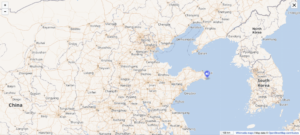

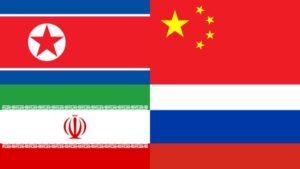
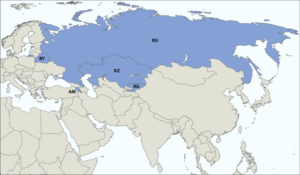

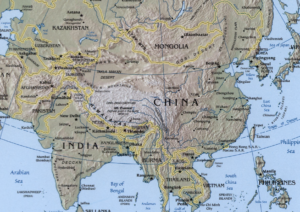












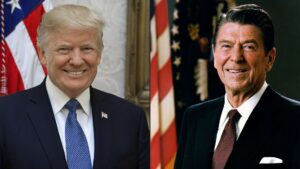

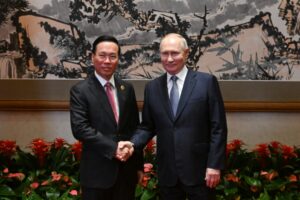
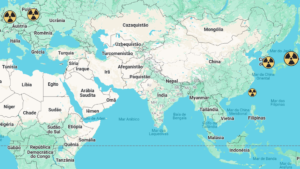
[…] Russia Stops Using the US Dollar in Its Strategic Reserves […]
[…] Russia Stops Using the US Dollar in Its Strategic Reserves […]
[…] unidentified soldiers and mercenaries trained to act in conflicts without giving attribution to the government of Russia. An example of “hybrid warfare” that will be explained further […]
[…] are the most concerning in terms of national security for the United States. This is because, if Russia or China possess such technology, they would be “light years” ahead of the United […]
[…] that its military or nuclear arsenal is insignificant compared to that of the United States or Russia and called for bilateral dialogues on strategic security that respect […]
[…] idea of working with Russia to transform this route will form the backbone of this economic cooperation in shipping and […]
[…] Russia has had great influence in Serbia since the 1990s when it supported it during the Balkan War. China has included several of the Balkan countries in its new “Silk Road” or Belt and Road Initiative investing in bridges, roads and ports in the region, and more recently with “vaccination diplomacy. ” […]